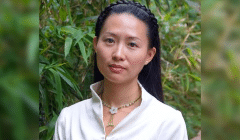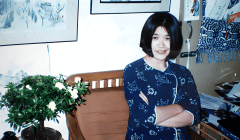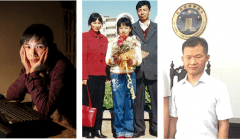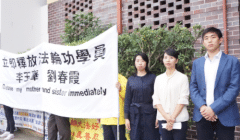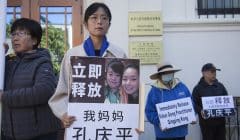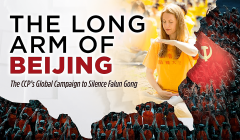Mr. Bu Dongwei (David Bu)
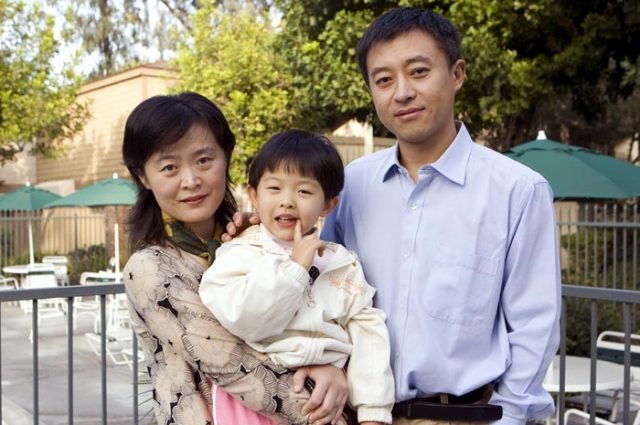
Bu Dongwei with his family in 2009 (Minghui.org).
“Although I never received any of the letters, I felt the change of the attitude. If they know the outside world is taking action… then the condition of this person will be improved, ” said Mr. Bu Dongwei after he reunited with his family in the United States.
When Bu had been arrested in 2006, over 3,300 practitioners had died in labor camps. Two of Bu’s personal friends had been taken to detention centers and were beaten to death. Due to persistent efforts from Amnesty International’s rescue campaign, Bu was not persecuted as brutally and freed earlier.
Targeted for a Letter
Mr. Bu Dongwei, also known as David Bu, began practicing Falun Dafa with his wife in 1996.
In 2000, for sending a letter to Chinese leaders asking them to reconsider the ban against their faith, Bu and his wife, Ms. Lou Hongwei, were forced to serve 8-10 months in separate labor camps in Beijing.
While employed as a staff member for the US aid organization, the Asia Foundation, Bu was again detained for his faith.
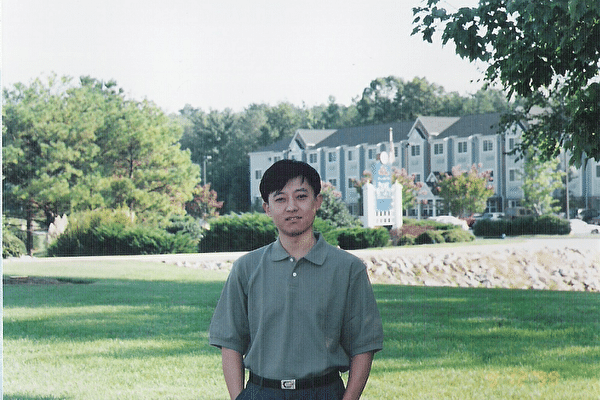
Amnesty Prisoner of Conscience
After Bu was arrested in 2006, his wife (who had left China) and other Falun Gong practitioners overseas raised awareness of his plight. His case caught the attention of Amnesty International considered and they named him a prisoner of conscience, at serious risk of torture or ill-treatment.
“Bu Dongwei had previously served a term of ten months’ RTL from August 2000 to May 2001 in Tuanhe RTL facility for ‘using a heretical organization to disrupt the implementation of the law’ after he petitioned the authorities asking them to review their ban on Falun Gong. During this period, he was reportedly subjected to torture and ill-treatment, including being made to sit all day in a small chair as well as beatings and sleep deprivation aimed at forcing him to renounce his belief in Falun Gong.” said Amnesty International.
According to Amnesty International, Bu was taken from his home in the Haidian District of Beijing, on May 19, 2006 and sentenced a month later to a “re-education” through labor (RTL).
Beijing’s RTL committee has the power to impose periods of arbitrary detention without charge or trial. Thus, the committee accused Bu of ‘resisting the implementation of national laws’ and ‘disturbing social order’.
The evidence cited was a verbal confession he made to police, and 80 copies of Falun Gong literature that the police discovered in his home. His family have disputed the evidence however, claiming that the police discovered no more than eight Falun Gong books when they detained him.
After his sentencing, despite repeated requests to the authorities, his family was not told where he is being detained.
When New York Times reached out to the Beijing Re-education Through Labor Bureau, they were told that media inquiries were not accepted by the Bureau.
It is suspected he was being detained at the Tuanhe labor camp, where he had been detained in 2000. Several Falun Gong adherents currently residing overseas, such as Zhao Ming in Ireland, were previously imprisoned at the facility.
Amnesty later released an update, confirming his whereabouts and calling for continued attention to his case.
“Falun Gong practitioner Bu Dongwei continues to serve a term of two-and-a-half years in RTL at Tuanhe RTL facility in Beijing after the police found Falun Gong literature in his home and detained him on 19 May 2006. His health has deteriorated in detention – especially his eyesight, possibly due to mal-nourishment. Amnesty International considers him to be a prisoner of conscience, detained in violation of his rights to freedom of expression and religion, and continues to call for his immediate and unconditional release.”
Case Resolution
In November 2008, Amnesty International released a press statement:
“Prisoner of conscience Bu Dongwei was released on 23 July 2008, roughly four months before the end of his term of re-education through labour. Amnesty were asked not to make this news public until Bu Dongwei and his family were happy to dislose it.”
Through Amnesty International’s extensive efforts before the 2008 Winter Olympics, Bu was given lighter treatment in custody. It was only after he escaped China, that he learned about Amnesty’s letter campaign.
“If they know that the outside world is taking action, and care about a certain person, then the condition of this person will be improved” Bu said.
Below is a video of Bu after his release, expressing his gratitude for those who made his release possible (courtesy Amnesty International).
Related reports:
- Amnesty International, “China: Fear of Torture or Ill-Treatment/Prisoner of Conscience: Bu Dongwei,” August 29, 2006: http://www.amnesty.org/es/library/asset/ASA17/049/2006/en/dom-ASA170492006en.html
- New York Times, “Falun Gong practitioner sentenced to labor camp – Asia – Pacific – International Herald Tribune”, August 30, 2006: https://www.nytimes.com/2006/08/30/world/asia/30iht-china.2639281.html
- Amnesty International “The Olympics Countdown—Broken Promises,” July 29, 2008: http://www.amnesty.org/en/library/asset/ASA17/089/2008/en/824a9d66-5724-11dd-90eb-ff4596860802/asa170892008eng.html


